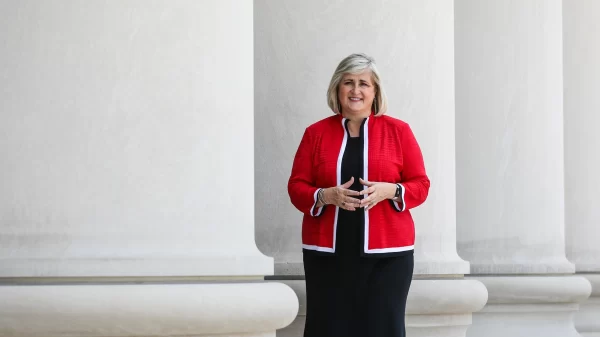|
Getting your Trinity Audio player ready...
|
Earlier this month, the Department of Labor announced that the Southwest Alabama Partnership for Training and Employment had been awarded a $1,499,999 “Pathway Home” grant.
Based out of Mobile, SWAPTE partners with the Alabama Career Centers, local employers, and community organizations to help unemployed and underemployed Alabamians.
Sydney Raine, the president of SWAPTE, told APR that the organization will be working with Mobile County Jail to provide “assistance to [inmates] to get their high school diploma or GED,” drug counseling, and soft skill development with the grant money.
“We will also place them in training programs for jobs that will be available in our community and we plan to interact with a number of different businesses,” Raine continued. “We’re in the process of discussing that now, of meeting with these businesses to determine whether or not they would be open to hiring individuals coming out of the jails in our communities.”
A $53 million program, the Pathway Home grants are meant to reduce recidivism and help formerly incarcerated people reintegrate into society. The recent round of grants were announced in February and build on a 2015-2016 pilot program where “85 percent of participants were work ready or had increases in work readiness” upon release.
Assistant Secretary for Employment and Training José Javier Rodríguez explained in a press release that the grants will “allow justice-involved individuals to get the training they need to secure good jobs as they re-enter their communities following a term of incarceration.”
“The results we hope to see is an acceptable percentage of those individuals that we’re going to work with will become self-sufficient with a job,” Raine explained to APR. Specifically, SWAPTE has set a goal of 50 to 60 percent of the individuals they work with being self-sufficient and in a job after they are released.
“Some of these young people that are coming out of the institution, they have other responsibilities—child care, what have you—so we hope to assist them in addressing those kinds of issues so when they get out, they don’t find themselves going back into the institution,” he elaborated.
At 29 percent Alabama’s recidivism rate is fairly average but last year Alabama Bureau of Pardon and Paroles director Cam Ward set the ambitious goal of cutting it in half by 2030. Announcing Alabama would be partnering with national recidivism organization Reentry 2030, Ward said he wants the state to be “one of the top states in the country on how we deal with recidivism.”
And back in 2020, Gov. Ivey’s Study Group on Criminal Justice Policy suggested expanding several programs meant to reduce recidivism as one way to fend off a lawsuit from the U.S. Department of Justice over conditions in Alabama prisons.
With SWAPTE still working on hiring employees to staff these new programs, it will take a while to see just how effective employment focused programs are at reducing recidivism amongst Mobile County Jail inmates.
Raine said they are still getting final clearance from the Department of Labor but are hoping to “really start putting the program in place” this August.




















































